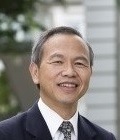Synopsis
South Korea is unique in the sense that it achieved both industrialization and democratization in just half a century. During the course of rapid changes, it became clear that the Korean entertainment industry had been benefiting very much from the synergy between industrialization and democratization. Especially the history of film industry in Korea shows that the government censorship on films disappeared thanks to industrialization and democratization. From that time on, the whole entertainment industry in Korea, including films, began to boom.
With rapid development of entertainment industry, Korea now faces a variety of intellectual property issues in the industry. Since entertainment contents are distributed over the internet, there is an increasing number of copyright disputes over the internet. Especially, internet users tend to upload what is called user-generated contents (“UGC”), often including parodied version of other’s copyrighted materials. Fair use doctrine does not clearly tell whether an unauthorised parody over the internet is allowed or not.
As star entertainers or celebrities earn an increasing amount of attention from the public, their commercial power to attract consumers also grows exponentially. Unfortunately, however, it is not clear whether their commercial power is subject to legal protection in Korea. For example, trademark protection for deceased celebrities is not certain. The so- called “right of publicity” is not recognized either. Many of the civil-law trained judges in Korea have been reluctant to protect the property interest in the commercial exploitation of a celebrity’s name or likeness. Only recently, influenced by American jurisprudence, some Korean courts have granted the right of publicity.
In entertainment industry, a whole range of contractual arrangements are made and exploited to facilitate the creation, distribution, and commercialization of contents. For example, there are contracts to commercialize a celebrity’s publicity under the condition that the celebrity is obliged to maintain his/her reputation, which sometimes led to disputes. In the music industry, many entertainment companies audit, recruit, train, educate, and market candidate singers and dancers under a long-term contract. Disputes arise when the candidate singer/dancer becomes suddenly popular one day.
During the course of his lecture, Prof. Jong would like to share with participants a variety of disputes arising from the uncertainty either of statutory provisions themselves or of contractual arrangements. It seems to be a rather open question how laws should respond to such a dynamic industry as entertainment in Korea and what should be fair and reasonable terms and conditions for such a dynamic relations between entertainment stars and companies.
Speaker

Sang-Jo JONG is a Professor at Seoul National University School of Law. He graduated from Seoul National University and completed his Ph.D. studies at the London School of Economics. He is a member of the Korean Academy of Science and Technology, the chairman of the committee for IP of KOFST, a member of the steering committee of the Judicial Research and Training Institute in Korea, a member of the Open Data Mediation Committee, and the chairman of the Korean Game Law and Policy Society.
Chair

Kung-Chung LIU holds an LL.B. and LL.M. from National Taiwan University and a Doctorate from the Ludwig Maximilian Universitaet (University of Munich). He was a Research Fellow at Academia Sinica, Taiwan until 2017. In 2003, he was a Visiting Professor at the Faculty of Law of the National University of Singapore and a Visiting Senior Research Fellow for the IP Academy of Singapore. Professor Liu has served as one of the founding Commissioners of the National Communications Commission in Taiwan between 2006 and 2007. In 2014-15, he was a Visiting Professor at the School of Law, Singapore Management University, and the Founding Director of the Applied Research Centre for Intellectual Assets and the Law in Asia (ARCIALA). In addition, he has been co-appointed Professor at the Renmin University, China (2017), and the Graduate Institute of Technology, Innovation & Intellectual Property Management, National Chengchi University, Taiwan (since 2010).
Programme
2.30pm - Registration
3.00pm – Lecture by Professor Jong
4.30pm – Discussion and Q & A
5.00pm - End of Event
Public CPD Points - 1.5 points
This programme is an Accredited CPD Activity under the SILE’s CPD Scheme. Participants who wish to claim CPD Points are reminded that they must comply strictly with the Attendance Policy set out in the CPD Guidelines. This includes signing-in on arrival and signing-out at the conclusion of the activity in the manner required by the organiser, and not being absent from the entire activity for more than 15 minutes. Participants who do not comply with the Attendance Policy will not be able to obtain CPD Points for attending the activity. Please refer to http://www.silecpdcentre.sg for more information.
Click here for the newsletter and registration link.
Last updated on 08 Jan 2018 .